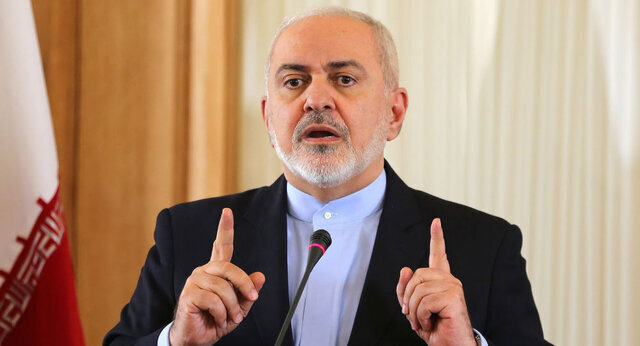Iran nuclear deal not renegotiable; sanctions must be lifted: FM Zarif

In a Friday meeting between Zarif and High Representative of the European Union Josep Borrell on the sidelines of the Antalya Diplomacy Forum in Turkey, the two sides discussed the latest developments pertaining to the nuclear deal, officially known as the Joint Comprehensive Plan of Action (JCPOA), as negotiations are underway in the Austrian capital of Vienna between Iran and the remaining parties to the agreement on its revival. The United States unilaterally abandoned the deal in 2018, Press TV reported.
Zarif said the Iranian nation has a “bitter experience” of the US violation of its commitments under former president Donald Trump and expressed hope that the current Vienna talks would yield results.
Representatives of Iran and the other five signatories to the nuclear agreement, namely Britain, France, Germany, Russia and China, have been engaged in the Vienna process since early April with the purpose of finding ways to bring the United States back to the deal and prepare the ground for its full implementation.
A US delegation is also in the Austrian capital, but it is not attending the discussions because the United States is not a party to the nuclear accord.
Trump abandoned the deal and reimposed the anti-Iran sanctions that the JCPOA had lifted. He also placed additional sanctions on Iran under other pretexts not related to the nuclear case as part of the “maximum pressure” campaign.
Following a year of strategic patience, Iran resorted to its legal rights stipulated in Article 26 of the JCPOA, which grants a party the right to suspend its contractual commitments in case of non-compliance by other signatories, and suspend some of the restrictions imposed on its nuclear energy program.
Now, the new US administration says it wants to compensate for Trump’s mistake and rejoin the deal, but it is showing an overriding propensity for maintaining some of the sanctions as a tool of pressure.
Tehran insists that all sanctions should first be removed in a verifiable manner before the Islamic Republic reverses its remedial measures.
Speaking to Press TV in an exclusive interview after Iran and the P4+1 group of countries ended the first day of the sixth round of their talks on Saturday, Iran’s top negotiator in the Vienna talks, Abbas Araghchi, said the Iranian delegation seeks a good deal that would address the Islamic Republic’s key concerns and would continue negotiations until such a deal is reached.
Elsewhere in his talks, the Iranian foreign minister pointed to the current situation in Afghanistan, saying differences between the Afghan government and other political groups have created major obstacles in the way of efforts to tackle insecurity in the war-ravaged country.
For his part, Borrell expressed hope that the Vienna negotiations would be constructive.
‘US breach unlawful’
In a meeting with Venezuela’s Foreign Minister Jorge Arreaza, the top Iranian diplomat outlined the latest situation in bilateral relations and issues of common interest in regional and international fields.
He highlighted the unlawful acts of obstruction by the United States in the way of the implementation of the JCPOA and informed his Venezuelan counterpart on the latest outcomes of the Vienna talks.
The Venezuelan foreign minister, for his turn, said the US sanctions against his country have caused many problems for the supplement of coronavirus vaccine.
He hailed Iran’s assistance and support for the Venezuelan people in difficult days.
The Iranian and Venezuelan foreign ministers also discussed the latest situation in Iraq and Afghanistan as well as the Latin American countries.
Croatia economic ties
Zarif also held a separate meeting with Croatia’s Foreign Minister Gordan Grlić Radman and expressed Tehran’s keenness to improve economic ties with Zagreb.
He added that Washington's sanctions have caused problems for many Iranian companies which have economic cooperation with Croatia and expressed hope that they would be able to resume their interaction with Zagreb.
Radman, for his part, said Iran enjoys a rich history and culture and Croatia is interested in the expansion of mutual relations.
‘More time required’
In a tweet on Friday, the Russian ambassador to international organizations in Vienna, Mikhail Ulyanov, said senior diplomats from Iran and the P4+1 group of countries are not exhausted but a little bit tired, stressing that the Vienna talks would need “additional time to complete successfully”.
“I believe that the negotiators are not exhausted but they are a little bit tired. It is obvious that the #ViennaTalks will require additional time to complete successfully this lengthy and rather complicated process,” Ulyanov, who is the head of the Russian delegation to the Vienna talks, tweeted.
Source: Iran Daily

